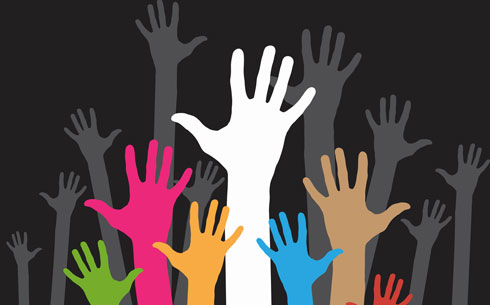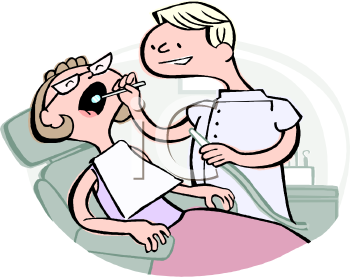by Anne Reedstrom
As I make my way home on the bus, it occurs to me that I answer a ton of questions in any given day. Students often preface their question with “I know it’s a stupid question, but…” There are no stupid questions. Really. There’s no shame in not knowing something and asking someone to explain it to you. I eat and have an apartment and a TiVo because you have questions and I can help you find the answers. There is, however one question that I dislike. Not because it is a stupid question or because I get asked it every day, but because the question itself surprises me.
“Why do I have to do clinical volunteering?” This is the granddaddy of them all. But there are also its relatives:
Cousin Bob: “Do I have to, really?”
Nephew Pete: “But you don’t really learn anything, do you? That’s what my friend’s sister’s roommate’s dog said, anyway.”
Sister Sue: “I shadowed once, for two hours, in high school. Shouldn’t that count?”
And its most evil of relatives to which I dare not give a name: “Do I have to do more of that pointless volunteering?”
I cringe just writing those sentences.
The answer to all of them is yes, a resounding, reverberating, shout it from the rooftop of Rodin and risk some facilities people running after you with clubs, YES.
 The other simple answer is “because it’s good for you,” but that’s what my mother always told me about eating peas, and I won’t touch the things. Gross.
The other simple answer is “because it’s good for you,” but that’s what my mother always told me about eating peas, and I won’t touch the things. Gross.
Still another simple answer is because it is important for admission to medical school. Not everything you do needs to be because medical schools want you to, but this is an important component to your application.
So what’s the real answer? You should volunteer in a way which brings you into contact with patients in a medical setting, even in a limited way. You should do this because this will help you confirm that you want to spend all day, every day around cranky sick people. It will help you become more familiar and comfortable in medical facilities. You will learn about what nurses and other medical staff do, see how hard they work and, hopefully, develop an appreciation of their efforts, which will be important during your clerkships, since the nurses know it all and you know nothing. It’s also not a bad idea to experience life at the bottom of the food chain. You will strengthen your communication skills, or perhaps discover that you do have some, and begin to learn how to establish a rapport with patients. These are all invaluable skills that you will need as a physician. And, medical schools want to see that you have explored the profession and aren’t entering into this endeavor blindly, or just because your parents want you to. In other words, it is important for admission to medical school.
So why is this my least favorite question of the hundreds of questions I get asked? Because deep down inside me, as an educator and, despite my reputation as the “Mean One,” someone who cares about you and your successes, I want you to want to gain this kind of experience and it depresses me when you don’t. I want you to realize the value of it and how much you can learn. I want you to be excited about being in a hospital, whether it’s the cardiac floor or the ED, and become inspired by the work of the doctors and nurses you observe. I want you to see the patients as people and want to help them, even if you can only get them a blanket, some water, or the nurse.
I know you’re busy. You’re Penn students; you’ve got a fair bit going on in your lives. Even still, I want you to want to make the time to educate yourself and help others all in one fell swoop.
Ultimately, it is good for you, like peas and the other green vegetables I eat instead of them, and I want you to want it because, selfishly, I want you to be the best medical students and doctors you can be.









